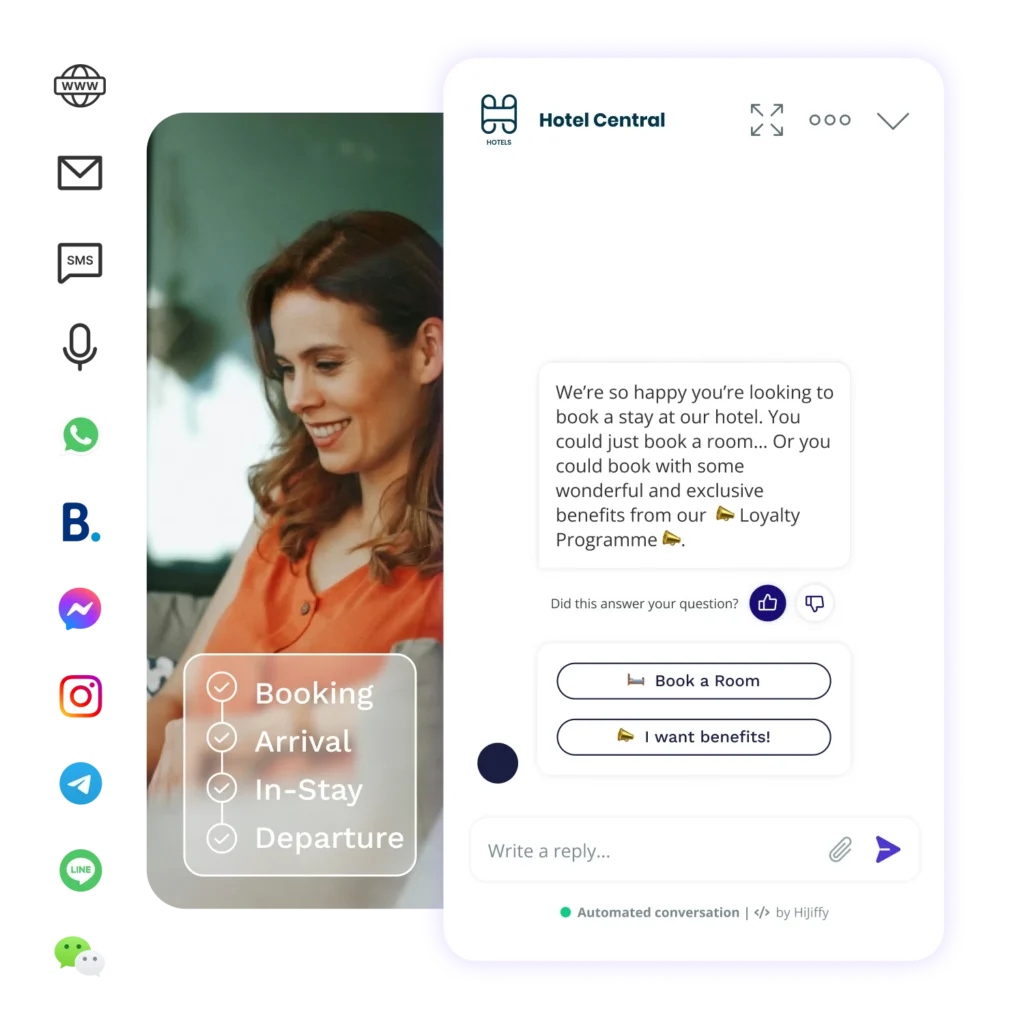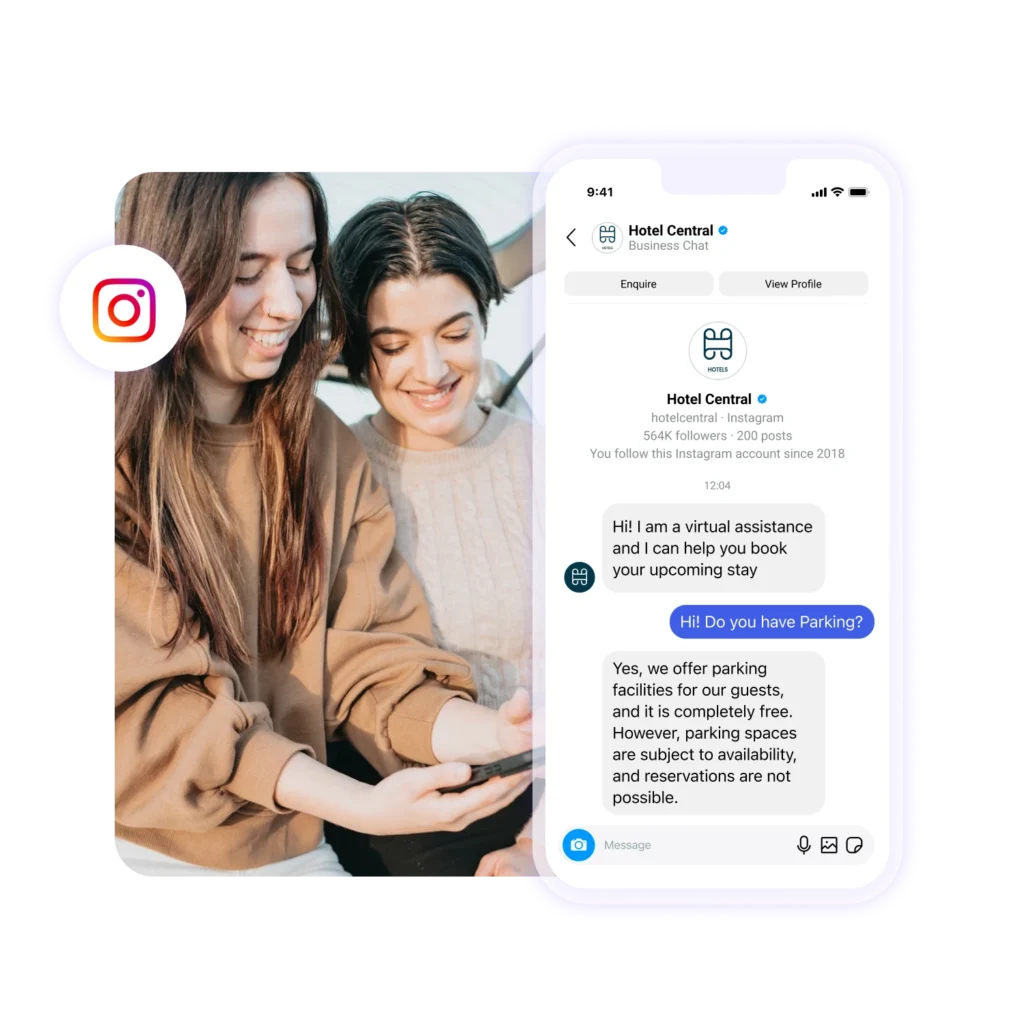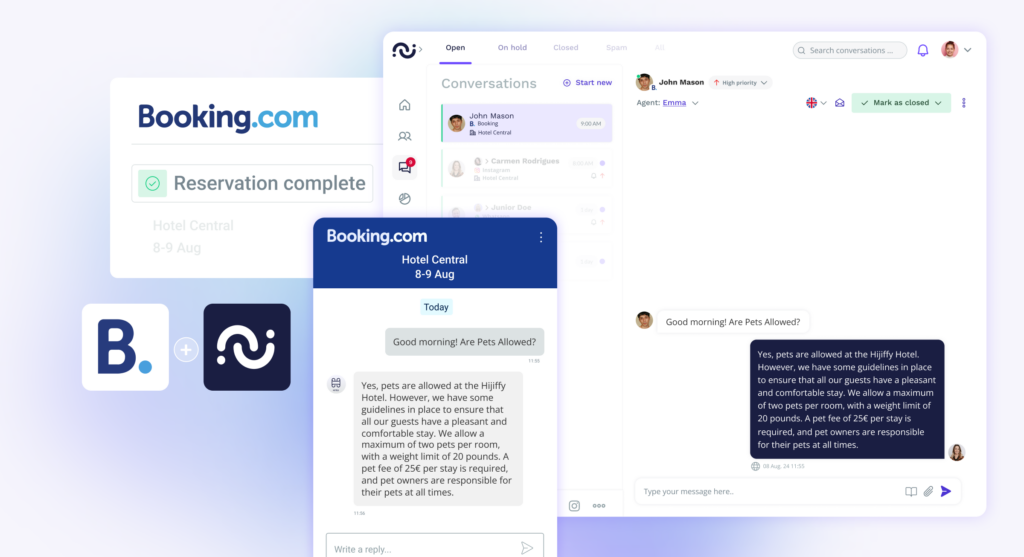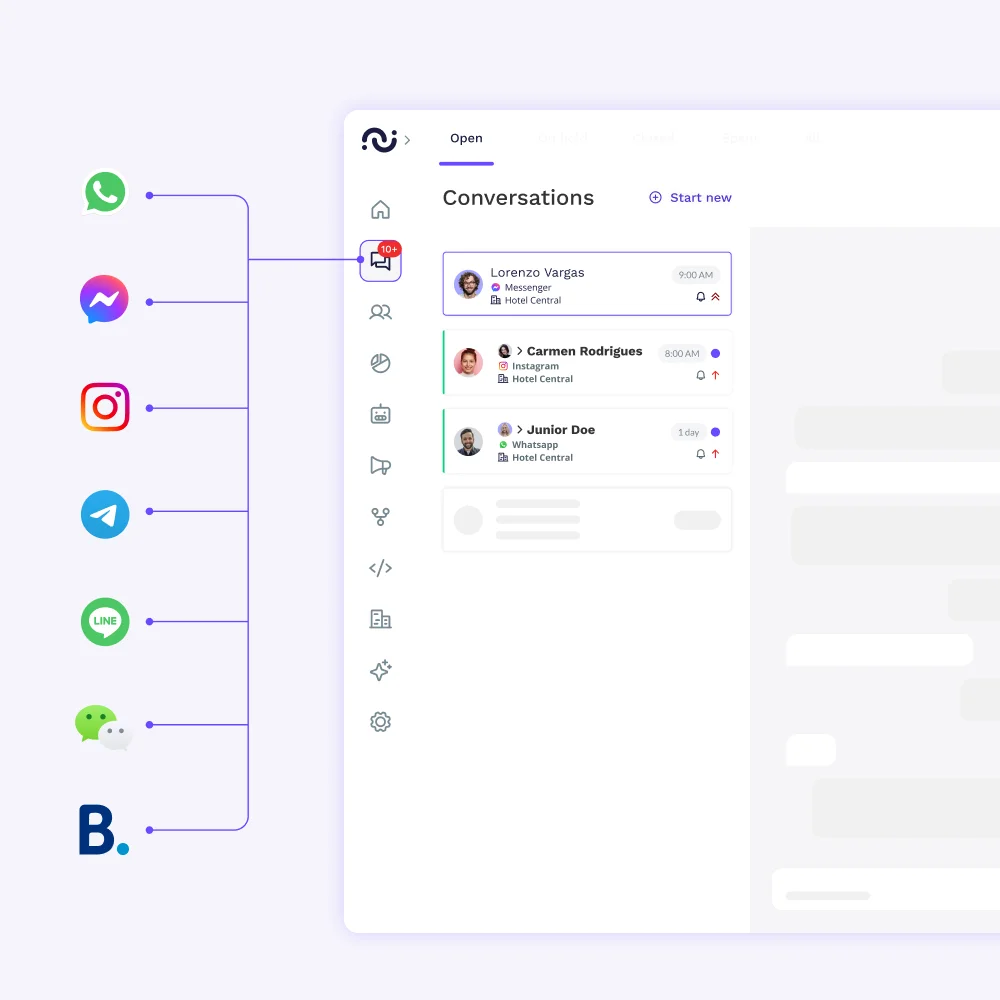All cards are on the table. What's your pick?
The hotel industry is undergoing a seismic shift in how bookings are made, driven by advancements in technology and evolving consumer behaviours. Hotel booking channels are no longer limited to traditional OTAs or call centres; instead, they are being transformed by AI, automation, and new digital platforms. With innovation unfolding at an unprecedented pace, the question is no longer if hotels should adapt to these changes but how.
This article explores the future of hotel distribution. We’ll discuss the key trends to watch, the emerging booking channels that are set to dominate, and what strategies hotels can adopt now to stay competitive:
While OTAs (Online Travel Agencies) like Booking.com and Expedia still play an essential role, many hotels are looking to reduce their dependency on these platforms due to high commission rates. Increasingly, hotels are diverting their focus toward strengthening direct channels. By owning the booking process, hotels not only improve profitability but also gain access to valuable guest data, fostering long-term loyalty. Learn which OTAs are the best choice for hoteliers in 2025.
Today’s guests demand easy, on-the-go solutions. From messaging apps to AI-powered assistants, many consumers now prefer real-time conversations for making bookings. Instant communication allows for quicker decision-making, and platforms like WhatsApp and Facebook Messenger are fast becoming critical touchpoints in the booking process.
AI is redefining guest interaction by enabling hyper-accurate recommendations and customisation. For example, AI tools can analyse user preferences and behaviour to provide tailored solutions such as the perfect room type or package. This shift toward personalisation significantly improves booking conversion rates and fuels guest satisfaction.

A hotel’s official website is set to become its most important sales channel. AI-backed innovations like chatbots, smart widgets, and automated chats are transforming direct bookings.
For example, solutions like HiJiffy’s chatbot provide instant guest support, guide users through the booking process, and even handle upselling or cross-selling. Advanced solutions also integrate other hotel management systems to provide real-time availability and flexible pricing updates, ensuring frictionless booking experiences.
Why it works:
Social platforms like Instagram and Facebook are becoming more than just channels for marketing – they’re booking platforms in their own right. With features like integrated booking links and instant replies through AI, social media is poised to handle reservations directly within its interface.
Take, for instance, Instagram DMs (Direct Messages). Hotels can engage with guests in real-time, answer pre-booking queries, and encourage reservations – all within the app.
Why it works:

Messaging apps such as WhatsApp, WeChat, and Telegram are gaining traction as booking channels. These platforms allow instant communication, personalisation, and even secure bookings directly within the app.
HiJiffy, for instance, leverages WhatsApp Business API to facilitate inquiries, provide instant offers, and even secure payments. AI ensures responses are prompt and tailored to guest needs.
Why it works:
Here’s an example of how AI can automate WhatsApp to send campaign messages at every stage of the guest journey:
Despite being “traditional” digital channels, email and SMS are evolving. Emails remain highly effective for personalised promotions and loyalty offers, while SMS is becoming popular for instant communications like booking confirmations and re-engagement campaigns.
AI-powered tools like HiJiffy refine email and SMS marketing strategies by automating personalised messages and reminders – ensuring guests feel valued throughout their booking experience.
Why it works:
Despite diminishing reliance, OTAs will remain relevant for capturing a global audience. However, their role is evolving, with many guests using OTAs for browsing before completing their booking directly with the hotel – a behaviour often referred to as the “billboard effect.“
Hotels are optimising their OTA listings while funnelling users to more cost-effective direct-booking channels.
Why it works:

With the rise of instant messaging and chatbot technologies, call centres are becoming less relevant for day-to-day bookings. While they can still be useful for managing high-value reservations, they lack the efficiency and cost-effectiveness of AI-powered solutions.
With nearly all travellers now researching and booking online before arrival, relying on walk-in bookings is risky. Hotels are better off investing in mobile-friendly solutions that optimise direct bookings.
Offline methods like print advertising and traditional travel agencies provide limited value in today’s data-driven and digital-first environment. Unlike online platforms, they lack the ability to track and measure results effectively.
Guests expect quick replies across platforms like hotel websites, messaging apps, social media, and OTAs. For hotel teams already stretched thin by staff shortages, this can be a real challenge. Missed messages don’t just mean frustrated guests – they mean missed revenue. Managing multiple booking channels is getting trickier, and staying competitive means finding a smart, efficient way to keep up.
An omnichannel communication system makes life easier by bringing all guest interactions into one simple dashboard. Your team can handle website chats, WhatsApp messages, Facebook inquiries, and even OTA bookings – all in one place. Want to save even more time? AI can step in to handle FAQs, flag urgent messages, and make sure important requests get to the right person fast. This means quicker, more accurate responses for guests, even during the busiest times.
Centralising guest communication makes a big difference for hotels. Faster responses mean happier guests who are more likely to return. By reducing the time spent juggling multiple platforms, hotel staff can focus on what really matters – delivering memorable, personalised experiences. Plus, keeping all communication in one place helps avoid missed opportunities, leading to higher conversion rates. For example, hotels using AI-powered messaging systems handle guest enquiries more efficiently, boosting direct bookings and increasing revenue. It’s a smarter, simpler way to stay connected and drive growth.

| Distribution Channel | Opportunities | Challenges |
|---|---|---|
| Website chat | Low-cost, direct guest interaction | Requires a good number of website visitors |
| Social media | High engagement, instant communication | A high volume of messages may need heavy moderation |
| Messaging apps | Instant responses, personalisation | Data privacy concerns |
| Email & SMS | High ROI, great for loyalty campaigns | Less effective without AI optimisation |
| OTAs | High visibility, global reach | High commission costs |
The future of hotel booking channels is multi-faceted and heavily shaped by AI and automation. Hotels that invest in diversified booking channels, leverage advanced technologies, and prioritise guest-centric strategies will not only stay competitive but thrive.
Adapt now, and you’ll not only future-proof your business but also build stronger connections with your guests – one booking at a time.
Want to know how HiJiffy’s omnichannel Guest Communications Hub can make you team’s jobs easier? Book a demo to chat with one of our experts and see how it works for you.
Sign up for our monthly newsletter to receive free resources and updates on impactful AI applications in hospitality.